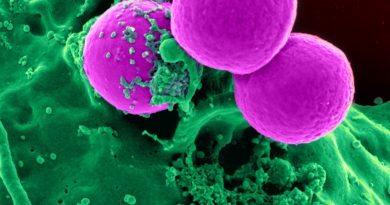Paris-Saclay Research Institute, Servier Group
The Servier Group has commenced the construction of its ultra-modern Research Institute in the Paris-Saclay cluster in France.
Covering approximately 45,000 m2, the new Servier Paris-Saclay Research Institute is expected to be completed in the year 2022. The state-of-the-art facility will accommodate all of Servier’s research activities.
One of the world’s top 8 innovation clusters
The Paris-Saclay cluster is one of the world’s top 8 innovation clusters and houses 40% of all industrial R&D in the Paris region.
Claude Bertrand, Executive Vice President R&D at Servier believes that uniting their experts in the institute will ensure faster exploration of new therapeutic pathways.
French research roots
The ambitious project, which will cost an estimated €290m ($321m) is anticipated to strengthen the global influence of French research. It is completely in line with the Servier Groups’s expressed desire to remain firmly rooted in France.
Olivier Laureau, President of Servier commented:
“By combining the research activities of our four French sites into a single, unique, and state-of-the-art center in Paris-Saclay, the Servier group is continuing to support France whilst attracting researchers from around the world.”
The Servier Paris-Saclay Research Institue architecture and scale
The new institute, designed by Wilmotte et Associés, will be constructed to the highest environmental standards aiming to achieve both HQE (High Environmental Quality) and WELL certification’s to promote the wellness of its occupants, as well as the BiodiverCity® label to protect biodiversity.
Once constructed, the Servier Paris-Saclay Research Institute will be able to accommodate 600 researchers, at present based in four different locations in France, into one single research center. Having all of Servier’s research activities conducted in one place means that the group will be able to expedite the decision-making process, improve communications and stimulate collaboration and partnerships.
A unique business incubator
Servier will accelerate its research dynamic with the construction of a unique incubator at the new institute. This will house innovative therapeutical orientated start-up companies. This framework will allow the pioneering start-ups to conduct their own independent research. They will also be able to share their knowledge and findings with Servier teams and advance the collaborative research efforts of the group even further. With 80 workstations spanning across 1,850 m2, this innovation incubator will include fully-equipped laboratories, collaboration areas, and office spaces.
Key emphasis on oncology
The new research institute will focus on the discovery of innovative therapeutic solutions with a key emphasis on oncology.
Accelerating its research in oncology is a key strategic priority for Sevier and will make up for half of the Group’s R&D spend over the next couple of years, according to the company. Presently, 700 employees in 50 countries are working to develop ground-breaking oncology therapeutic solutions.
The Servier Group has five cancer treatments available at the moment and is aiming to develop twelve more drug candidates.
Collaborative research
The French pharma giant has entered into 21 partnership agreements with academic institutions and industrial and biotech companies in this therapeutic area to help pursue this goal.
In addition, the group will be able to rely on the expertise of CentraleSupélec, the French Alternative Energies and Atomic Energy Commission (CEA), the French National Center for Scientific Research, Paris-Sud University, the Ecole Normale Supérieure and the Ecole Polytechnique, some of which have already been working with the Group for several years.
More about Sevier Group
The Sevier Group, which is the second-largest pharmaceutical company in France, currently has 22,000 employees around the world, 5,000 of which are based in France, and declared solid revenues of €4.2 billion in 2018. The independent pharmaceutical laboratory organisation reinvests 25% of its income into Research and Development and all the companies’ profits are put into its growth.





